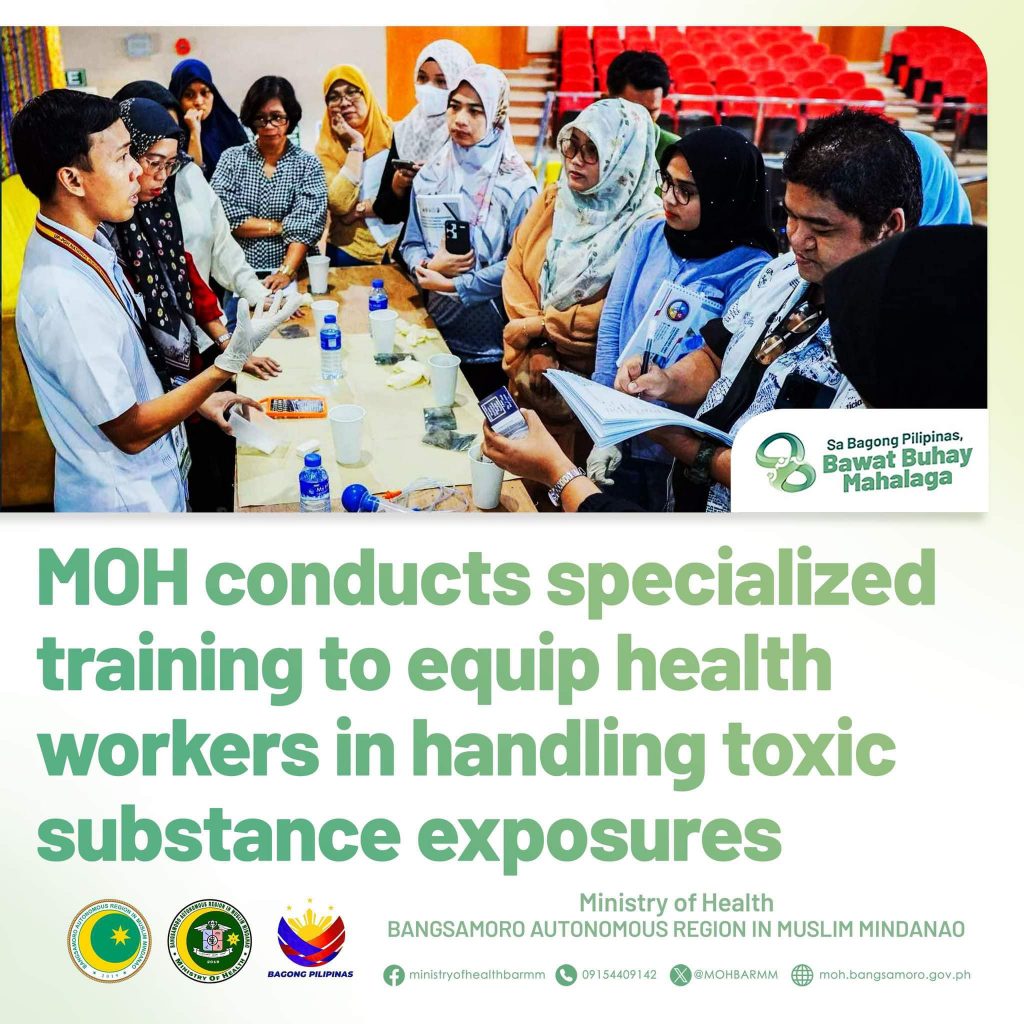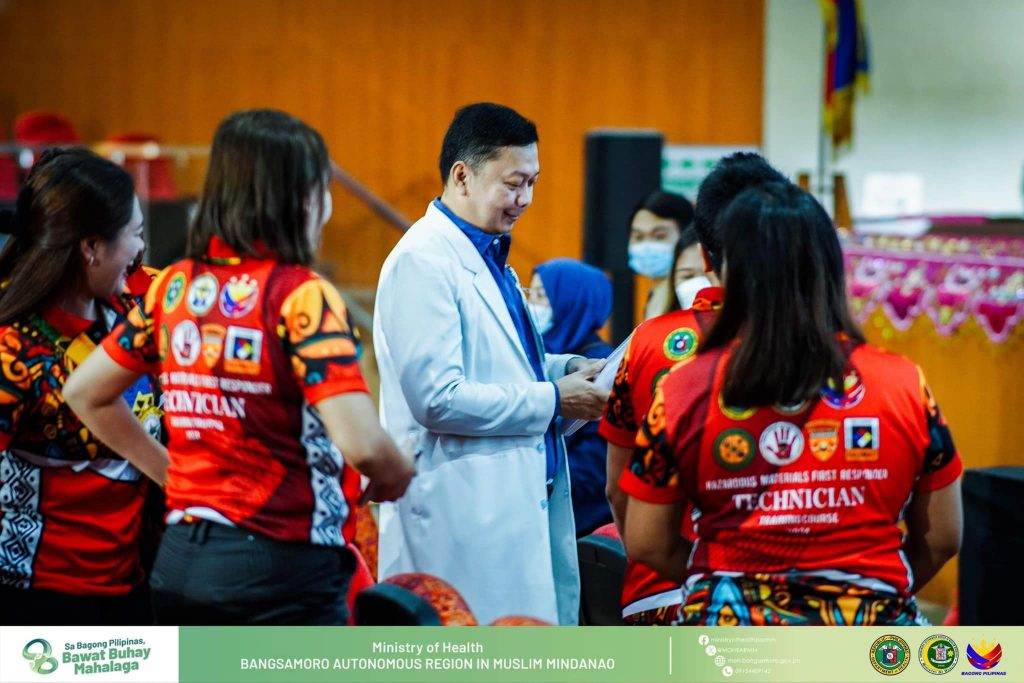
COTABATO CITY – The Ministry of Health in the Bangsamoro Autonomous Region in Muslim Mindanao (MOH-BARMM) Regional Poison Control Program has launched a groundbreaking training initiative to enhance medical response and management skills for cases of toxic substance exposure, snakebites, and marine envenomation.
The two-day training session, held in collaboration with the Cotabato Regional and Medical Center (CRMC) Toxicology Unit and the Southern Philippines Medical Center Poison Treatment and Control Institute, aims to improve community healthcare delivery by providing medical practitioners with critical skills and knowledge.
The training focuses on equipping healthcare providers with the skills needed to handle emergency poison management, covering topics such as the use of antidotes, emergency stabilization techniques, and best practices for treating venomous stings and bites.

The program’s objective is to ensure that healthcare professionals in community-based facilities can efficiently address toxic exposures and envenomation cases, thus strengthening the overall healthcare network.
As part of this initiative, CRMC recently launched its own toxicology unit, designed to handle poison cases and toxic substance exposures.
The unit is also prepared to administer emergency treatments, including antidotes like activated charcoal, sodium bicarbonate (baking soda), and demulcents, with specialized treatments like vinegar and hot water immersion for marine stings.
The said unit marks a significant advancement in CRMC’s capacity to address poison emergencies and envenomations with on-site expertise.
Health experts note that most poisoning incidents occur in the home, often when victims are asymptomatic but still require medical observation. “A patient with a history of poisoning must be observed at a healthcare facility, even if they are asymptomatic,” emphasized one health professional.
The program will also address the risks and responses to snakebites, which remain a severe public health issue in rural areas. Snakebites are classified as a neglected tropical disease, leading to high rates of chronic illness, limb loss, and fatalities. Asia has one of the highest snakebite mortality rates globally, with an estimated 15,000 to 55,000 fatalities each year.
As part of its educational outreach, the program provided key guidance on snakebite first aid:
Do’s for Snakebite:
1. Note the snake’s appearance.
2. Remain calm and minimize movement.
3. Clean the wound and cover with a loose bandage.
4. Ensure quick transport to a medical facility.
Don’ts for Snakebite:
1. Avoid cutting the wound or attempting to suck out venom.
2. Do not apply a tourniquet, ice, or garlic.
3. Do not give alcohol or medications.
4. Do not delay seeking medical help.
For more details on poison management and envenomation treatment, the CRMC Toxicology Unit is available via their hotline at 09534909908.
